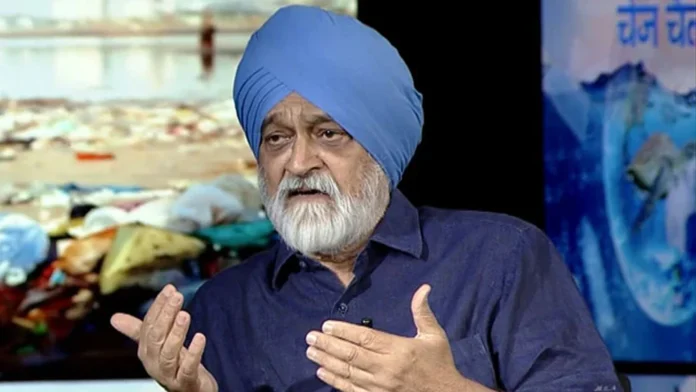New Delhi [India], January 3: Economist Montek Singh Ahluwalia shared insights into former Prime Minister Manmohan Singh’s efforts to convince opposition parties during his second term regarding the Indo-US nuclear deal.
Ahluwalia, who served as the Deputy Chairman of the Planning Commission of India, revealed that Dr. Singh had to seek assistance from then-President APJ Abdul Kalam to persuade opposition leader Mulayam Singh Yadav, who was against the nuclear deal. This was especially critical as the Left parties had moved a vote of confidence, threatening to oust the government.
“Manmohan Singh had to navigate strong opposition within his party and from the Left. He managed to avoid a crisis by getting President APJ Abdul Kalam involved to persuade Mulayam Singh. As a scientist, President Kalam was able to convince Mulayam Singh, leading him to support the government,” Ahluwalia explained in an exclusive interview with.
He added that for Manmohan Singh, India’s progress was contingent on lifting the Nuclear Suppliers Group (NSG) restrictions, which was only possible due to the strong relationship between Singh and then-US President George Bush. This relationship played a pivotal role in lifting the NSG restrictions, which opened the door to greater technological and military collaboration between India and the US.
“Manmohan Singh was determined that India’s future progress depended on the removal of these sanctions. The Indo-US deal was only achievable if the NSG restrictions were lifted, and this was made possible due to the close relationship between President Bush and Manmohan Singh,” Ahluwalia noted. “This set the stage for an expanded India-US partnership, which has only deepened under the current government.”
Ahluwalia also credited former Prime Minister Atal Bihari Vajpayee for his diplomatic efforts after the Pokhran-II nuclear test in 1998, which led to Western sanctions on India. He praised Vajpayee for rebuilding the relationship with the West, although the NPT sanctions remained in place, preventing India from importing Uranium for its nuclear reactors.
“Following the Pokhran-II test, the US imposed sanctions, but Vajpayee realized the importance of restoring ties with the West. While extra sanctions were lifted, India still faced restrictions due to the Non-Proliferation Treaty (NPT),” said Ahluwalia.
He further clarified that while the Indo-US nuclear deal is often seen as an India-US agreement, its true significance lay in lifting the NSG restrictions on countries like India that had nuclear capabilities but did not sign the NPT. “We didn’t sign the NPT because it was an unfair treaty. We were willing to pursue universal disarmament, but we couldn’t remain without nuclear weapons if other countries possessed them,” he added.
Additionally, Ahluwalia lauded Dr. Singh’s economic achievements, particularly the removal of millions from poverty. Under Singh’s leadership, India experienced unprecedented economic growth. Ahluwalia emphasized that Singh’s tenure should be judged holistically, with the Indo-US nuclear deal standing out as the most significant achievement of his second term.
“Manmohan Singh’s leadership led to substantial economic growth and lifted 138 million people out of poverty, and the nuclear deal was pivotal in freeing India from nuclear restrictions,” Ahluwalia concluded.


